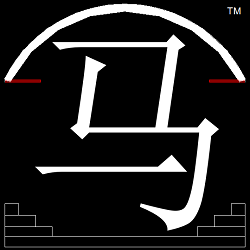Spiritual Language
(module 3.2)
| 🇨🇦 | 🕆 | 🇨🇦 | 🕆 | 🇨🇦 | 🕆 | L🇨🇦 |
An Alphabet of Particles
To understand how the spirit works within our body, we need first to characterize its particles. I’m confident that this concept of spiritual particles having a certain amount of intelligence is rooted within the Bible.
Most believers are aware that it is common for certain Bible verses to hold more than one meaning. As far as interpretations go, this provides for us a little slack. People of varying backgrounds can read a verse and understand it, regardless of the fact it may have varying connotations. I realize I need to tread lightly here, but this is how I interpret certain verses of the Bible.
John 1, NIV: (1) In the beginning was the Word, and the Word was with God, and the Word was God.
In earlier module 2.1, we interpreted the “Word” of this John 1:1 verse as representing Jesus. Here we're introducing another layer of comprehension. I also believe that this “Word” encapsulates the concepts of consciousness and intelligence.
If we understand that it takes a number of letters to formulate a word, this reinforces the concept that intelligence is described within the verse of John 1:1.
Using human language as an example, there are limitations to the number of letters within each language. The Greek alphabet has 24 letters; the English, French, and Portuguese alphabets 26; Spanish has 27; and the Russian and Ukrainian alphabets each have 33.
The Khmer Language, often referred to as Cambodian - has the most letters of any alphabet in the world, 74. In contrast, the Rotokas language spoken by folks native to the island of Bougainville and just east of New Guinea, uses just 12 letters in its alphabet.
I am sure there’s a myriad of reasons why each alphabet has a certain maximum number of letters. I can certainly think of one very practical reason, and that's due to an alphabet’s efficiency.
If there are too few letters within an alphabet, there’s not enough distinct sounds to support a language’s vocabulary. On the flip side, if there are too many letters... the language's alphabet becomes bulky and inefficient. Common sense then dictates, there has to be a reasonable number of letters without its language being overly cumbersome, complicated, and inefficient.
If we apply similar reasoning under the umbrella of physics, it's easy to understand that the process of formulating words takes a certain amount of energy. As a result, the less energy it takes to formulate a language's words, and yet still be unique and distinct enough to support its vocabulary… the more efficient a language's alphabet.
Further, if we apply physical principles to the spiritual-realm, and correlate words as being particles… then we can make a couple of logical conclusions.
First, the less energy required to create a “word”, the more efficient the process. Secondly, and only if all other factors remain equal - the smaller that these letter-like particles are, the less energy it takes to formulate (create) words and interpret (read) them.
Due to Einstein’s famous formula E=mc2, since mass is equivalent to energy, it’s logical to conclude that the more compact a word is - the less energy it takes to formulate, and likewise interpret.
I can image if you wrote the word “gesundheit” on a large roadside billboard, it would take a lot more energy than if you merely jotted this same word down on a small piece of paper.
Are you beginning to sense just how intelligent and potentially powerful the spiritual realm is? It takes much less energy in the spiritual realm to utilize a language than it does in the physical realm.
The Ancient-Hebrew Language And its Sacred Scripts
The letter-count of the ancient-Hebrew language is small compared to most, as it has merely 22 letters. If we base a language's efficiency solely upon its letter count, then ancient-Hebrew is more efficient than most of our spoken languages.
The ancient-Hebrew script is usually held in high esteem, and is viewed by some as being sacred. One of the reasons for this, is that it states within the book of Genesis that all of God’s creation was created through his words. God spoke our universe into existence!
I understand from the Lord, that the spirit within us works through particles that are actual letters of a language. I can’t say for sure, but potentially it’s the Paleo-Hebrew script, or one that closely resembles it.
It is understood that there were two different ancient-Hebrew scripts. One was the Proto/Paleo-Hebrew script (ketav Ivri), and the other was the Assyrian script (ketav Ashuri). These two different scripts often lead to conflicting opinions within the Jewish community as to which is more sacred.
The Proto/Paleo-Hebrew script that is based upon Phoenician, appears to be the most “natural” as far as I can tell. For this reason, I believe that this script holds promise for resembling the actual spiritual sub2-atomic particles.
The Holy Spirit?
If we view the Holy Spirit as being comprised of sub2-atomic particles, and if each particle is a letter - it leads us into a myriad of possibilities.
Within the overall spiritual-world itself, if its basis are letters and words made up of particles, then it seems obvious there’s potential for more than one language and alphabet. Within this assumption, there could be a particular group of particles working together as letters for each unique spiritual language.
I conclude that the most powerful and efficient spiritual-language of them all would be the language of the Holy Spirit. The Holy Spirit, which is basically particles of “light”, can travel wherever it wishes.



